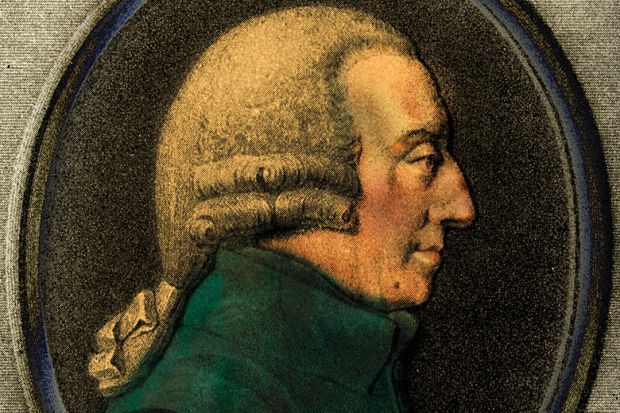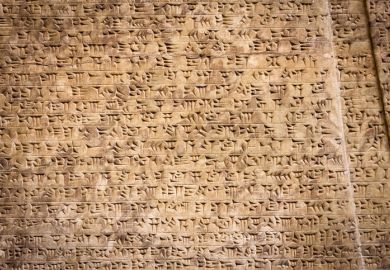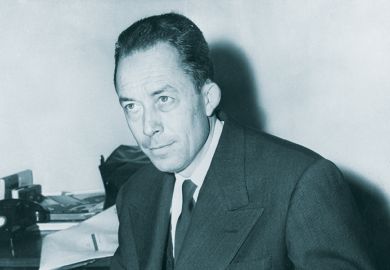The Club – whose members included Samuel Johnson, James Boswell, Joshua Reynolds, Edmund Burke, Edward Gibbon, Oliver Goldsmith, David Garrick and Adam Smith (Boswell’s professor in Glasgow) – was the greatest constellation of talent since the English Renaissance. It surpassed the Scriblerus Club of Jonathan Swift, Alexander Pope and John Gay, and has not been equalled in modern times by the Bloomsburys or other literary sodalities.
Leo Damrosch’s familiar but lively and perceptive The Club (with 124 helpful illustrations accompanied by his incisive comments) is a group biography that traces “the intersecting lives, interests, friendships, rivalries, and careers” of these eminences up to and beyond the formation in 1764 of the original nine-member Club. This assembly of learned and ingenious good fellows dined out on pigeon, wigeon, gudgeon and sturgeon. The Club was designed to inspire warm comradeship, high-powered conversation and intellectual stimulation. David Hume wrote that through enlightened talk “the whole man acquires a vigour which he cannot command in solitary moments”.
Johnson, the natural leader who feared solitude and craved company, combined impressive brain power with warm-hearted humanity. As Plato said of Socrates, “Of all those whom we knew in our time, he was the bravest and also the wisest and most upright.” Boswell, a drunkard and whoremonger (for as little as sixpence), played Falstaff to Johnson’s Prince Hal: “Yet the man thus corrupt, thus despicable, makes himself necessary to the prince that despises him, by the most pleasing of all qualities, perpetual gaiety.” Damrosch does not note that Johnson’s remarks on Falstaff in Henry IV, Part 2 suggest that he took vicarious pleasure in Boswell’s behaviour. Conversely, Damrosch writes, “in Johnson Boswell had the father figure he really needed: highly moral and capable of criticism, but nonjudgmental and loving”.
Johnson admired Reynolds for his artistic ability and sweet temper, Burke for his range of knowledge and mental prowess, Goldsmith for his prodigal generosity and literary talent. Damrosch is more interesting on the less familiar figures and could have devoted a useful chapter to Goldsmith. The character of this imaginative idiot and court jester strangely combined absurdity and malice with kindness and benevolence. Other Club members were just as strange. The pudgy face of the grotesquely obese Gibbon “resembled the rear end of a baby”. Johnson called the reticent Adam Smith “as dull a dog as he had ever met with”. Although he seemed “unclubbable”, Smith was elected for his work.
Johnson’s later life was transformed by three fortunate events: the annual royal pension of £300, the formation of the Club and then his bountiful and emotional friendship with Henry and Hester Thrale, who supplied congenial company and replaced his need for the Club. Both Boswell and Thrale had many liaisons, but were decent enough to avoid conjugal relations when they had the clap.
Johnson felt guilty – a dominant characteristic – about his failure to visit his domineering, aged mother in Lichfield and the failure of his marriage to his older wife Tetty, who desperately tried to look young. She boasted, Garrick said, “a bosom of more than ordinary protuberance, with swelled cheeks of a florid red, increased by the liberal use of cordials”. Despite his profound piety, Johnson never found religious consolation, suffered spiritual torment, and always feared death, damnation and hellfire.
Jeffrey Meyers is a fellow of the Royal Society of Literature. His latest books are Robert Lowell in Love and The Mystery of the Real: Correspondence with Alex Colville (both 2016), and Resurrections: Authors, Heroes – and a Spy (2018)
The Club: Johnson, Boswell, and the Friends Who Shaped an Age
By Leo Damrosch
Yale University Press, 488pp, £20.00
ISBN 9780300217902
Published 23 April 2019
POSTSCRIPT:
Print headline: Where men of letters held court
Register to continue
Why register?
- Registration is free and only takes a moment
- Once registered, you can read 3 articles a month
- Sign up for our newsletter
Subscribe
Or subscribe for unlimited access to:
- Unlimited access to news, views, insights & reviews
- Digital editions
- Digital access to THE’s university and college rankings analysis
Already registered or a current subscriber? Login







